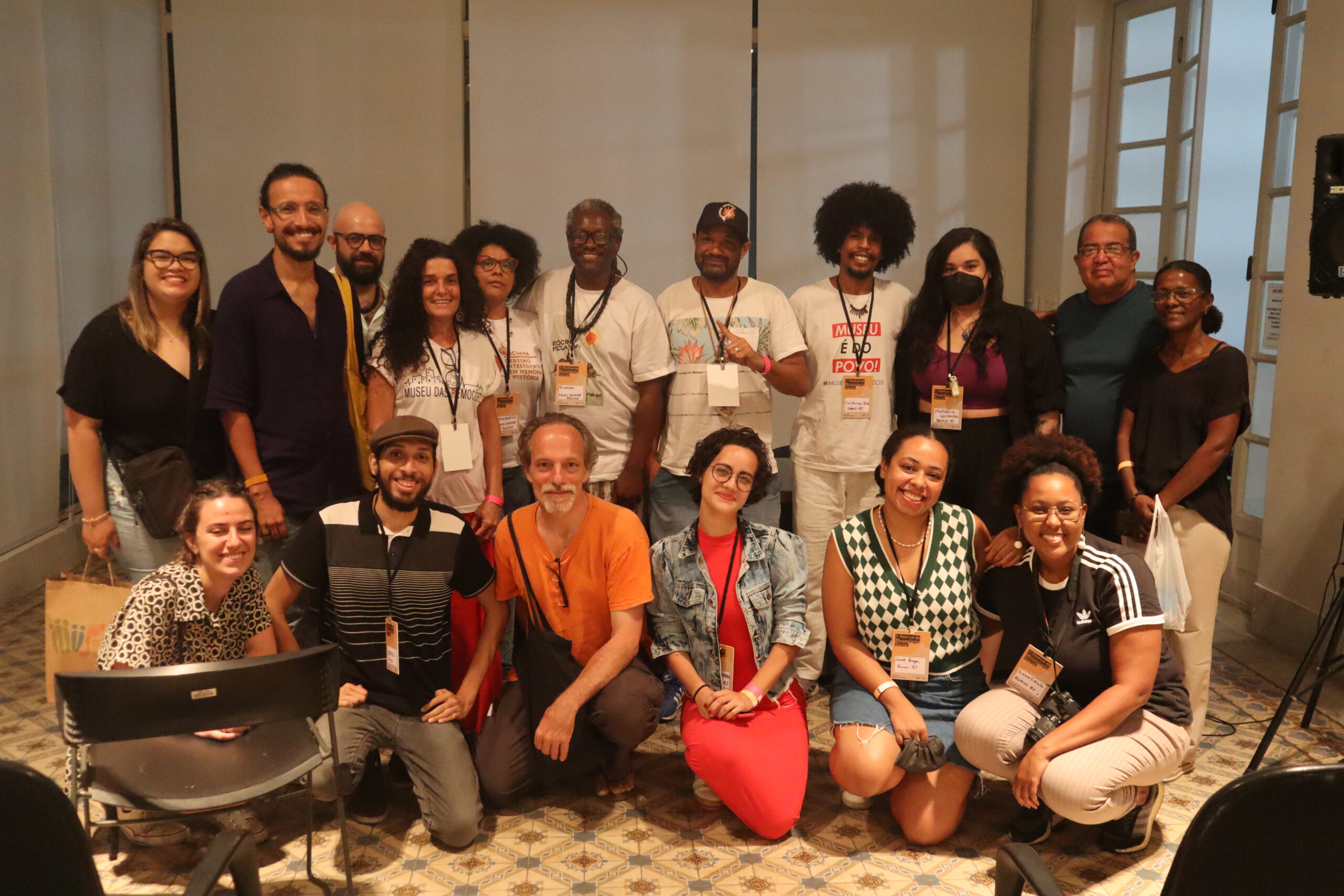
A group comprised of Rio de Janeiro’s community museums, the Rio de Janeiro Social Museology Network (REMUS-RJ), hosted its 1st Festival of Social Museology at the Museum of the Republic in Catete, in Rio’s South Zone, on December 16-17, 2022. REMUS seeks to encourage cooperation and knowledge exchange among its community museum members as they work to preserve culture, history, and heritage in the city’s communities.

The Areia Branca Living Museum, Maré Museum, Horto Museum, Evictions Museum, Capoeira Living Museum, São Bento Living Museum, Rocinha Sankofa Museum, Black Admiral Museum, Favela Museum (MUF) and Baixada Fluminense Museum of Urban Art and Culture had stalls at the event displaying local artifacts from each of their territories. Each stall presented information including materials on the struggles experienced by their territories. According to event organizer Luis Henrique Porto, of REMUS-RJ, a museum is defined by interactions, objects, memories, and people coming together to represent history, heritage, or culture.
“A museum is not inside a building. A museum is any place where there is a relationship between objects, people, and memories.” — Luis Henrique Porto, REMUS-RJ
Day One: Community Museums and the Right to Collective Memory
The first day began with a performance by members of the Maré Museum who read from a book called Maré in 12 Eras, singing parts of the text. The book—published in 2021—recounts the building of the 16 favelas that comprise Maré, with a particular focus on the future of the community, and highlights the importance of Maré’s story being told by those who lived it.
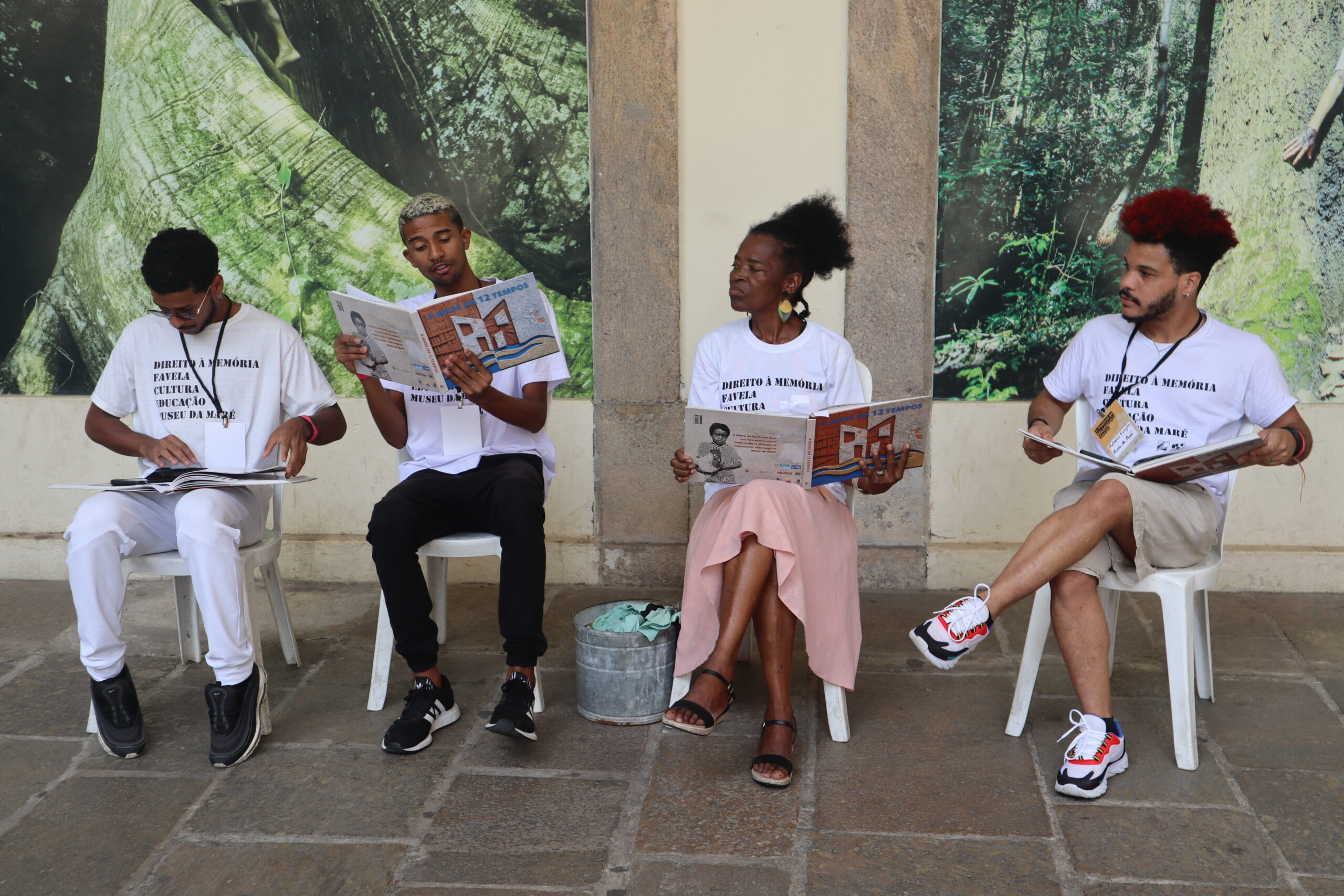
Various creative and cultural activities followed. The Areia Branca Living Museum from Belford Roxo presented a documentary titled Belford Roxo: A Journey in Time, which uses art to express the history of the municipality. Poetry, music and dancing—including a charme performance where members of the public were encouraged to join in and dance—entertained attendees and passers-by, and reflected the rich cultural heritage of the community museums that form the Social Museology Network.
Representatives of the community museums and REMUS answered questions from the public. Emília Maria de Souza, a founder of the Horto Museum—established in 2010 to fight eviction threats by showcasing the identity and history of the bicentennial Horto community from the perspective of its residents—stressed the mutual benefit that museums gain from being part of the network.
“Each museum in the network benefits from coming together as part of the museology group to strengthen the history and memory of our communities, becoming much more important than any one of our individual struggles. The moment that this group comes together, our collective fight for our territories is strengthened.” — Emília Maria de Souza, Horto Museum
A coordinator of the festival from REMUS, Nathália Lordosa, discussed how community museums shed light on the culture of Rio’s peripheries, which are often overlooked by larger-scale, national museums. By having museums that are dedicated to a particular community, the residents become more educated about their own history and culture.
“These communities have memories, heritage and culture but nobody sees it, nobody researches it. So what the community museums do is say: ‘let’s research this history, let’s research this heritage and let’s show it and talk about it.’ Because when you communicate this history, it means a lot of people have access, right? The residents themselves realize: ‘Hey, there’s a history here!’” — Nathália Lordosa
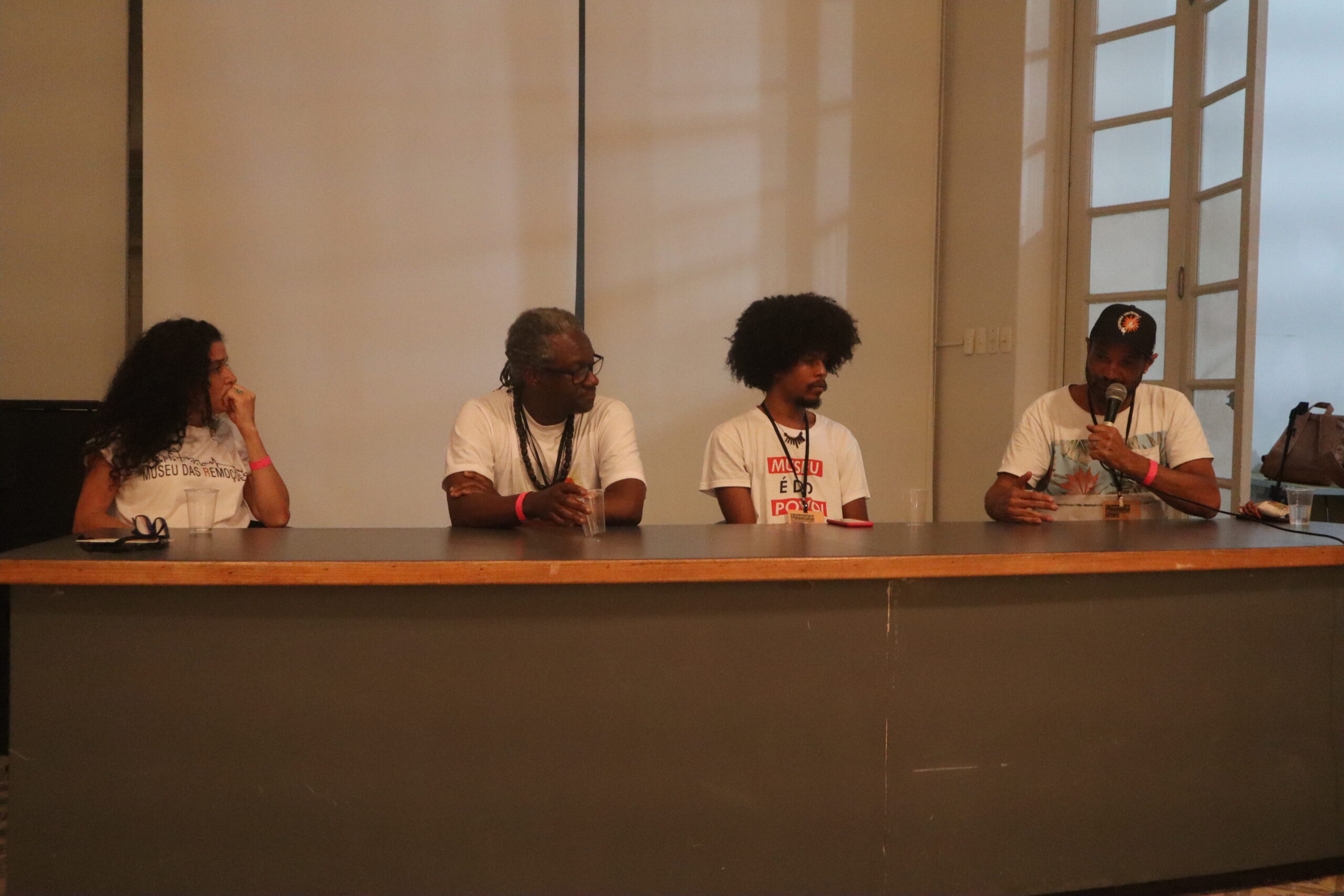
The first day finished with a lecture titled Democracy, Social Museology and Public Policies with a panel made up of Sandra Teixera from the Evictions Museum, Antônio Firmino from the Rocinha Sankofa Museum and Sidney Tartaruga from the Favela Museum. They discussed the network and the need for public policies supportive of community museums.
The Evictions Museum is managed by residents of Vila Autódromo—where 700 families were evicted from their homes in the lead up to the 2016 Rio Olympic Games. The museum was created to pay homage to the memory, stories, and legacy of those who were evicted, while also acting as a resistance tool for communities facing eviction threats. Sandra Teixeira praised the Social Museology Network for providing a space in which like-minded community museums could exchange their experiences, cultures, and ideas. She described how museums like the Evictions Museum emerge as a consequence of government neglect, echoing Lordosa’s notion that peripheral communities are not represented by larger, national museums.
“The Evictions Museum was born in the absence of public policies for groups who do not feel included in policymaking, education, rights, in the process of building the city, and much less in the process of preserving memory. These are groups that do not feel represented in the process of historic conservation. We go to the great museums and we do not feel represented… [or] included. We do not feel our identities valued.” — Sandra Teixeira
Day Two: Strengthening Community Museums Means Community Power
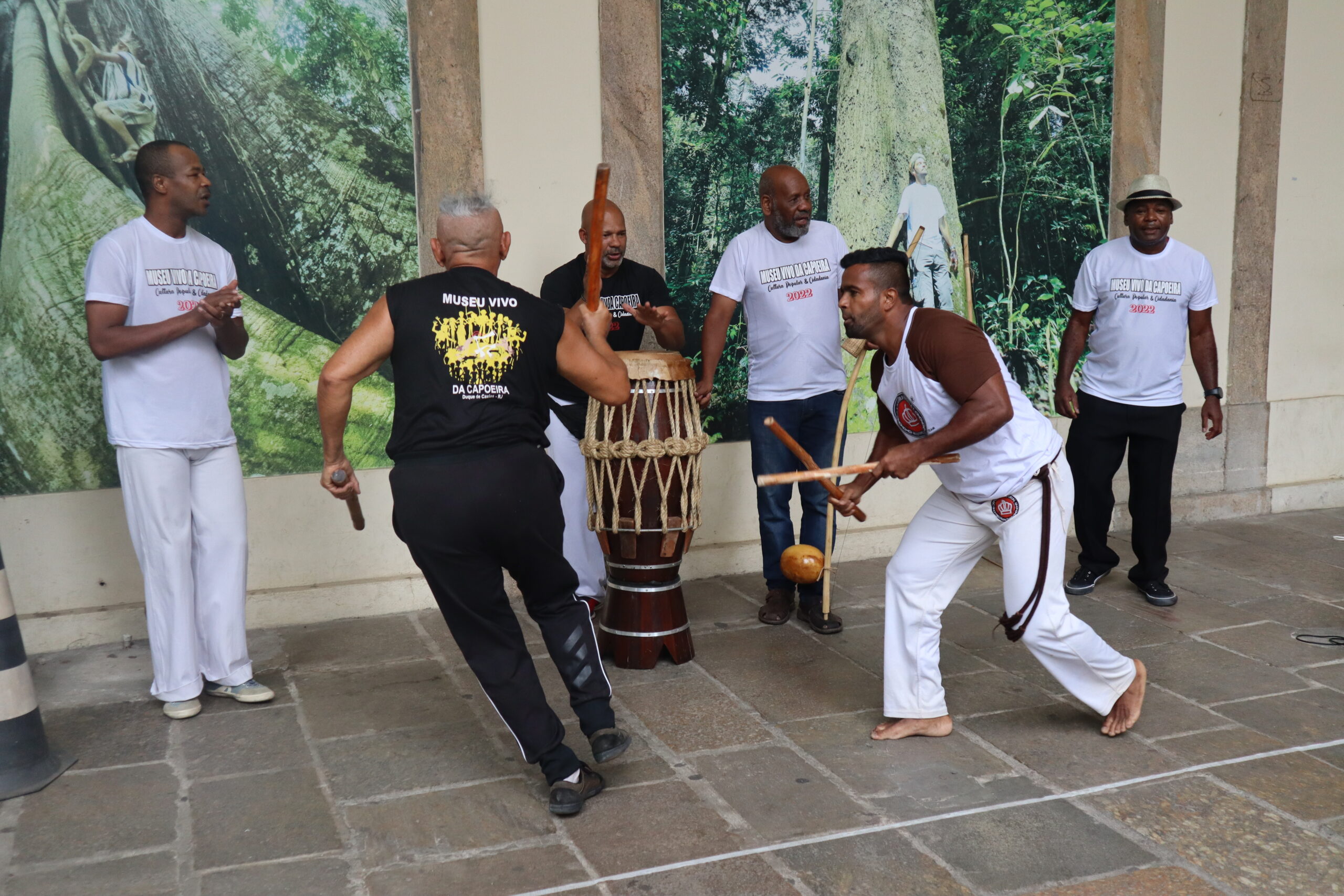
The second day of the festival began with a capoeira performance from the Capoeira Living Museum. Antônio Augusto Braz is director at the São Bento Living Museum, under which the Capoeira Living Museum operates. Braz explained how the artistic expression of capoeira is used for community benefit: “The Capoeira Living Museum is based on the affirmation of the capoeira tradition as a whole, in conjunction with the demands of the community.”
Antônio Braz also emphasized the importance of this festival for the network of community museums across Greater Rio, so they can interact, strengthen themselves collectively, and push for more inclusive policymaking.
“There is a joint effort in defense of public policies that strengthen heritage, memory and identity. With respect to grassroots organizations [coming] together, this type of meeting is important. And there is also the symbolic side of indigenous rituals (pajelança), of getting to know each other, strengthening bonds, translating experiences, comparing expectations, and keeping this energy alive.” — Antônio Augusto Braz
The day included further cultural activities, such as a guitar and dance performance by the Baixada Fluminense Museum of Urban Art and Culture and a samba performance by Paulo Sorriso, from Belford Roxo.
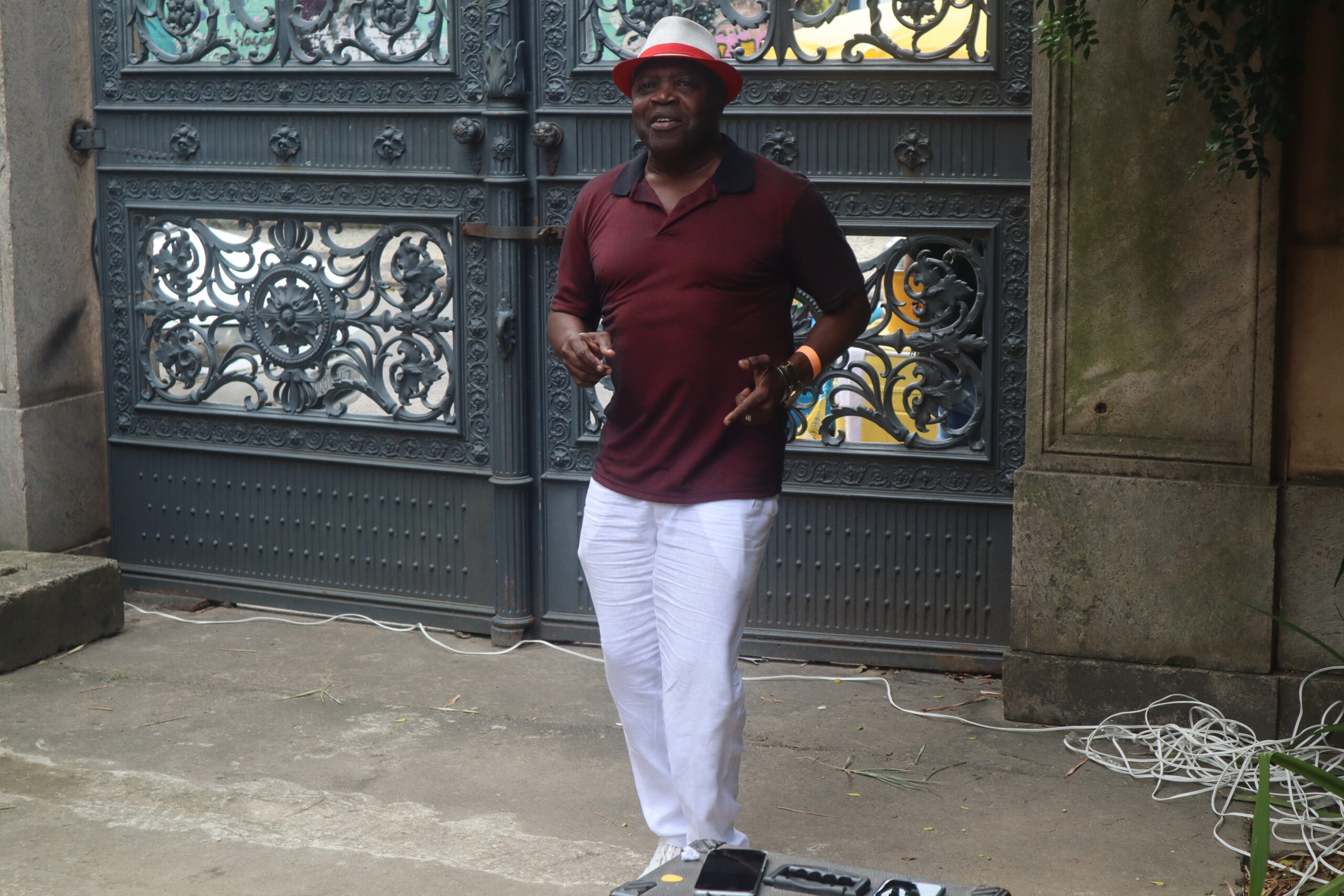
At around 4pm, Federal Deputy Jandira Feghali arrived to give a talk. Regarded as an important voice in Brazilian politics, attendees of the festival took selfies with Feghali and were eager to hear what she had to say. She praised the Social Museology Network, highlighting that “we need to create new communication tools that allow us to fight this cultural and strategic war for Brazil.”
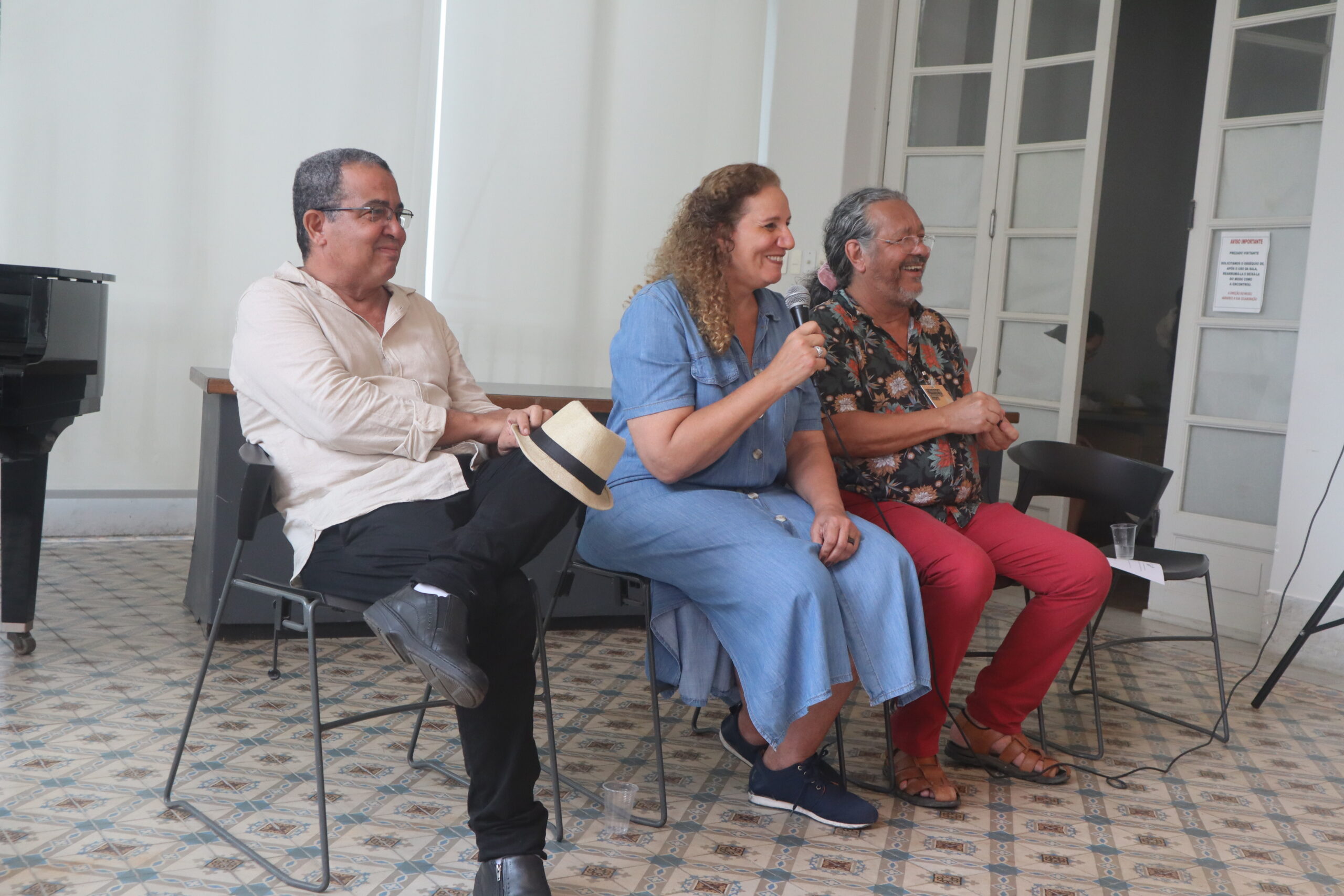
After Feghali’s speech, the Social Museology Network presented the festival’s final lecture titled Feelings, Resistance and Struggles—Experiences from the Social Museology Network of Rio de Janeiro. The speakers were poet, museologist and director of the Museum of the Republic Mário Chagas, Antônio Augusto Braz from the São Bento Living Museum, Elisson Batista dos Santos from the Baixada Fluminense Museum of Urban Art, and Zilmar da Costa Duarte from the Black Admiral Museum.
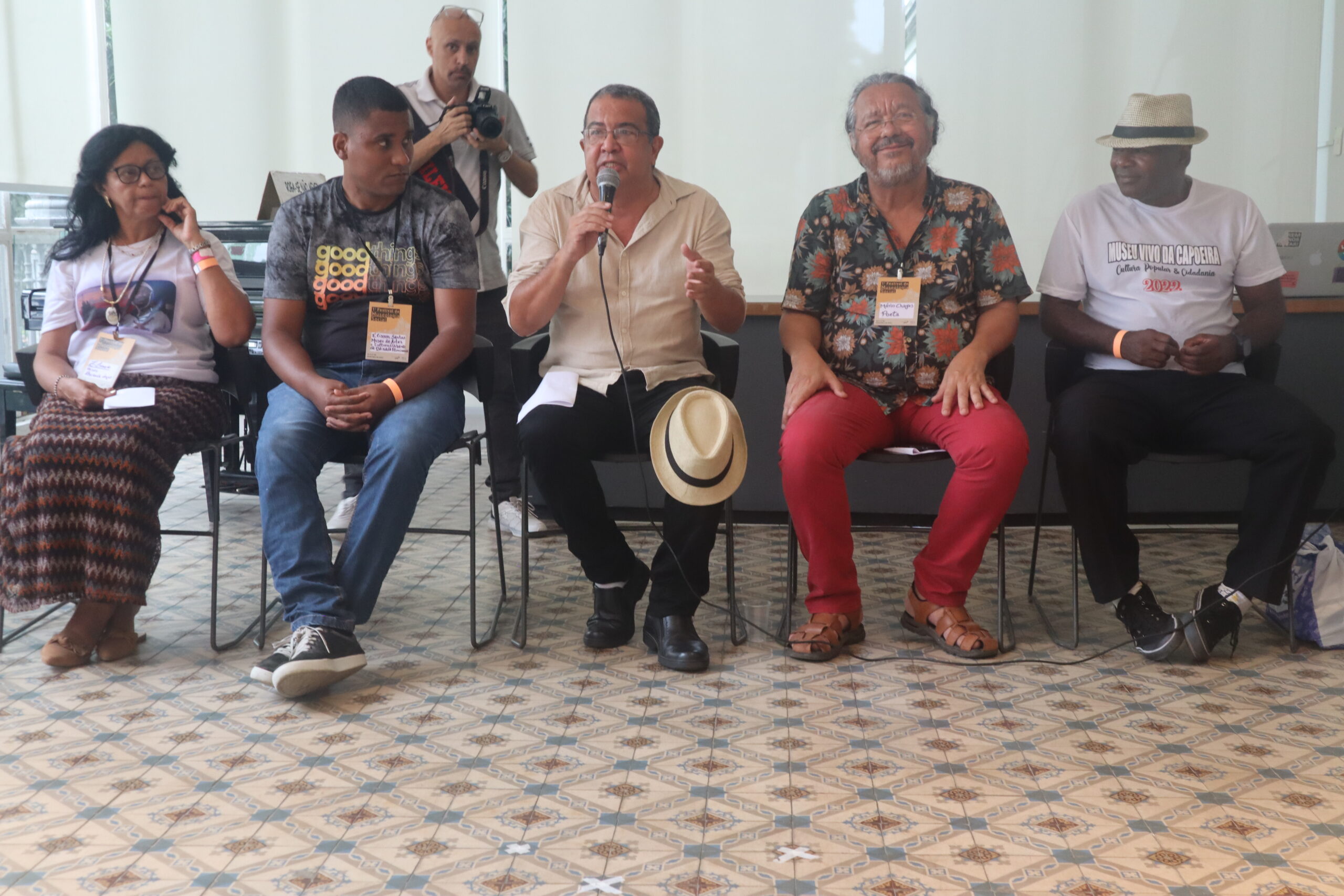
As the panel discussed their shared museological experiences, Santos commented on the potentializing force of community museums.
“The museum is a tool that can show the present, the past, and the future. It has the capacity not only to be [a form of] resistance, but also to be [a form of] power over the future.” — Elisson Batista dos Santos
The event closed with an emotional theatrical performance from the Evictions Museum. It was centered on the theme of residents being evicted from their communities, something that remains a constant worry for many living in Rio de Janeiro’s favelas, despite most today being generations old.
The 1st Festival of Social Museology highlighted the importance of community museums as places that preserve the heritage and memories of the peripheries. Through artistic expressions, these museums are able to showcase the rich culture and history of their communities. The museums have deep significance for their communities and beyond, and by coming together as a strong network through REMUS, they grow even stronger as units of resistance and power in Brazil’s political and cultural spheres.
